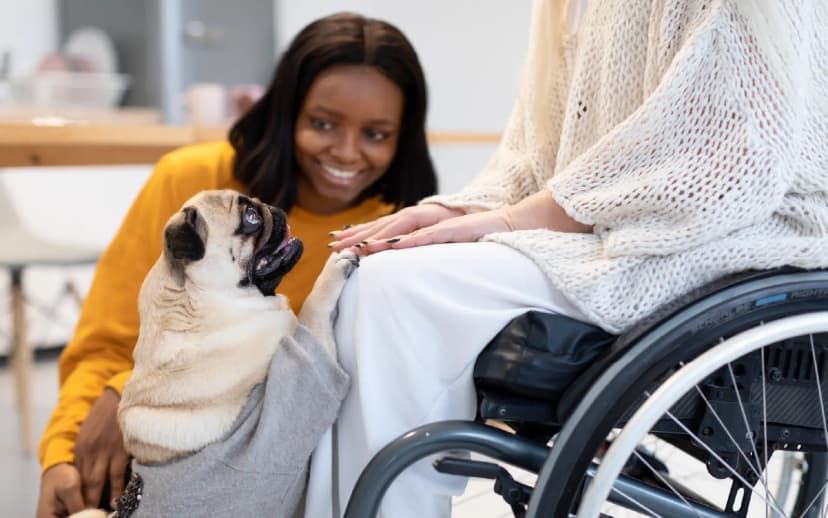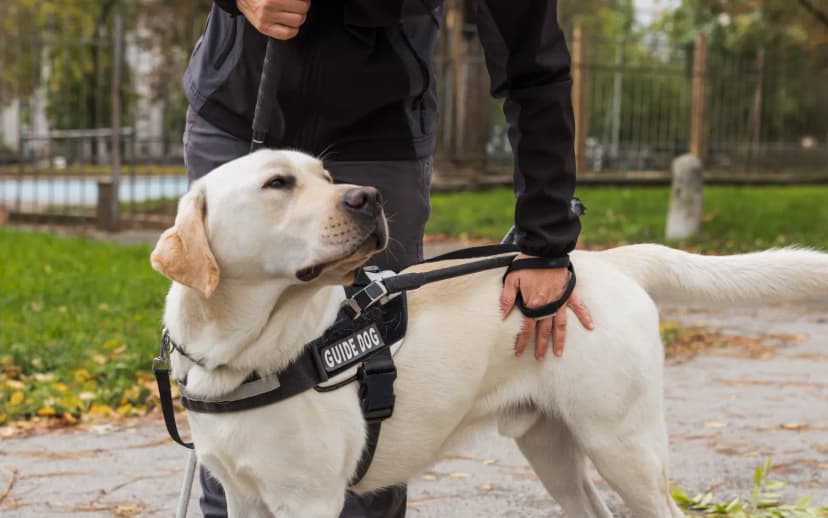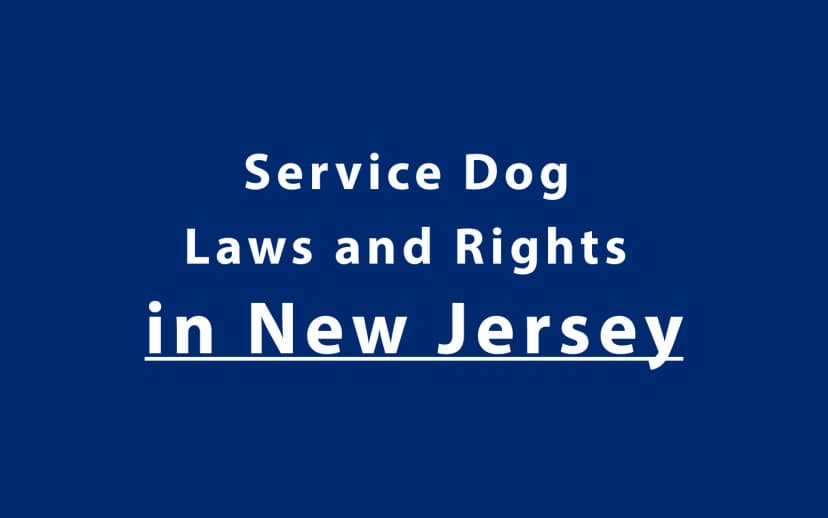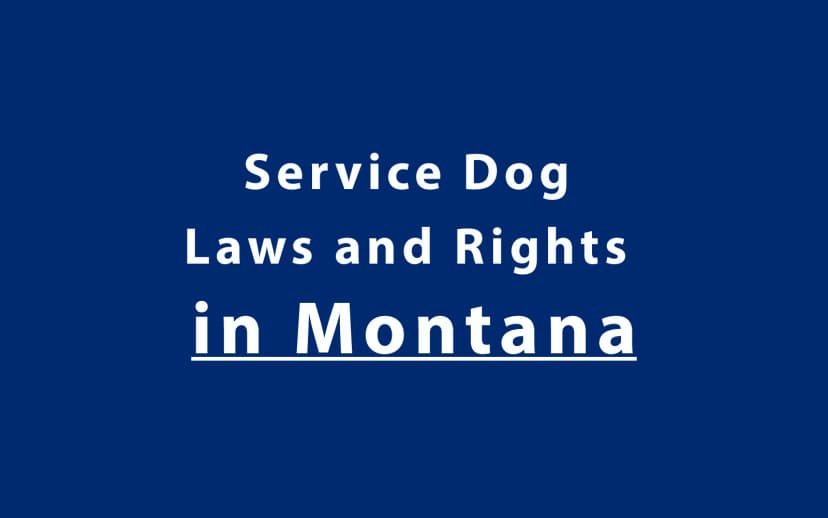Service Dog Laws and Rights in Virginia
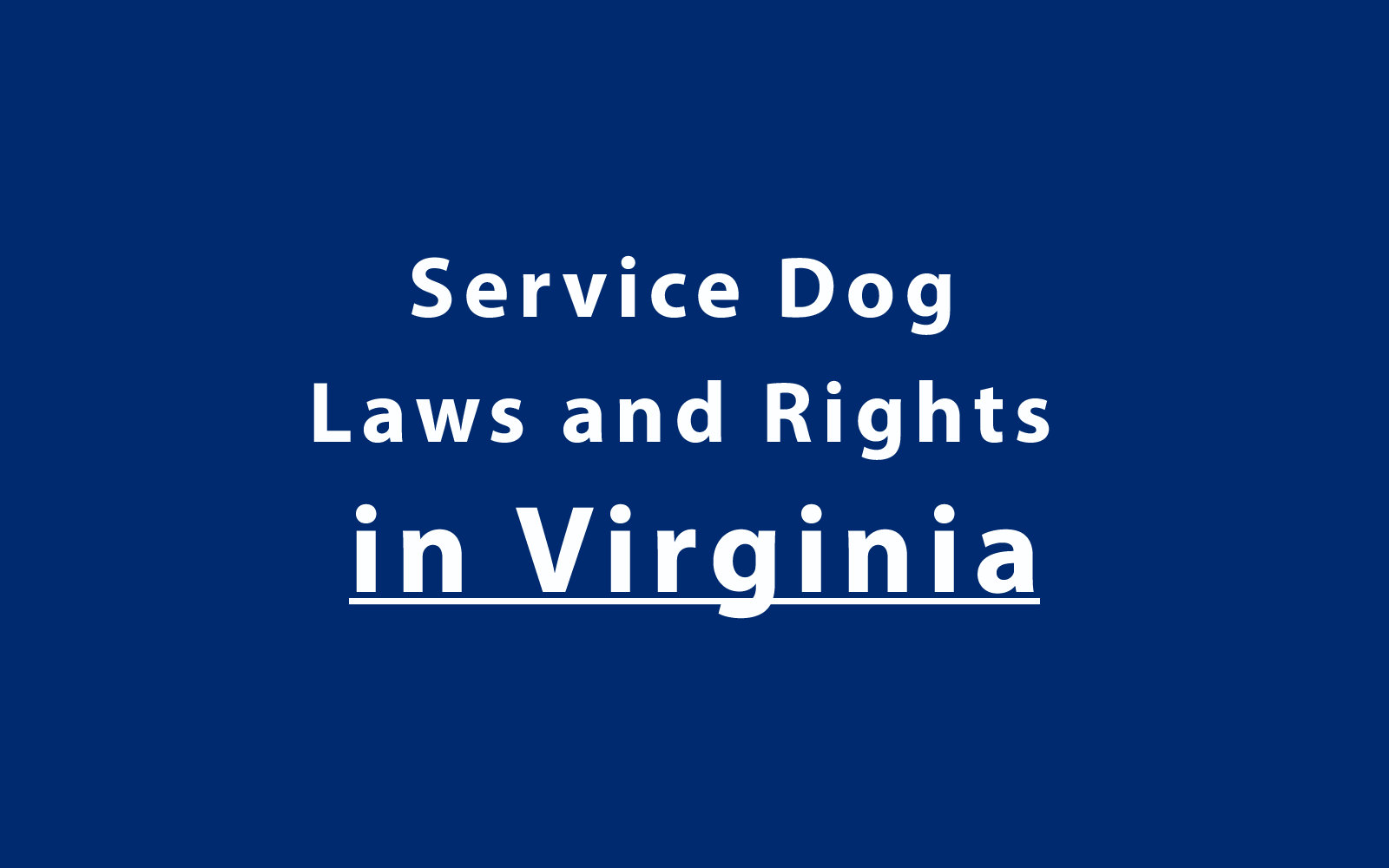
Service dogs play a vital role in supporting people with disabilities—whether physical, sensory, or psychiatric—by performing specific, trained tasks that improve daily functioning and independence. In Virginia, service dog handlers are protected by a combination of federal laws and state-specific legislation that guarantee their rights in public access, housing, employment, education, and transportation. This comprehensive 2025 guide explains everything you need to know about service dog laws in the Commonwealth of Virginia.
What Qualifies as a Service Dog in Virginia
Under both the Americans with Disabilities Act (ADA) and Virginia Code § 51.5-44, a service dog is defined as a dog individually trained to perform work or tasks directly related to a person’s disability.
Examples of qualifying service dog tasks include:
• Guiding individuals who are blind
• Alerting to sounds for people who are deaf or hard of hearing
• Assisting with mobility or balance
• Detecting and interrupting psychiatric episodes (e.g., PTSD flashbacks, panic attacks)
• Reminding the handler to take medication
Not considered service animals:
• Emotional Support Animals (ESAs)
• Therapy animals used for comfort in clinical or communal settings
While ESAs provide important emotional benefits, they are not trained for specific tasks and do not have the same legal access rights as service dogs.
Public Access Rights in Virginia
Under the ADA and Virginia law, individuals with disabilities accompanied by trained service dogs have the right to enter and use all places open to the public, including:
• Restaurants, cafés, and grocery stores
• Hotels, libraries, and museums
• Parks and recreational facilities
• Public transportation terminals
• Medical offices and hospitals
In Virginia, service dogs in training also have public access rights when accompanied by an experienced trainer.
Permissible questions by business staff:
1. Is the animal required due to a disability?
2. What work or task has the dog been trained to perform?
What cannot be asked:
• Proof of disability
• Demonstration of tasks
• Documentation, certification, or identification
Handlers must keep the dog under control, either by leash, harness, or voice command, and ensure appropriate behavior. Businesses may ask a dog to leave only if it is disruptive, aggressive, or not housebroken.
Housing Rights in Virginia
Under the Fair Housing Act (FHA) and state law, individuals with service dogs—and ESAs—are protected from discrimination in rental housing.
Key housing rights include:
• Service dogs and ESAs are allowed even in “no pets” housing
• No pet deposits or monthly pet fees may be charged
• Landlords cannot impose breed, size, or weight restrictions
Documentation:
• If the disability or need is not obvious, landlords may request a letter from a licensed healthcare provider explaining the necessity of the animal
• They may not request detailed medical records or demand training certificates
Violations can be reported to the Virginia Fair Housing Office or the U.S. Department of Housing and Urban Development (HUD).
Employment Rights in Virginia
Title I of the ADA, along with Virginia state laws, requires that employers provide reasonable accommodations to employees with disabilities, which may include the use of a service dog at work.
Steps to request an accommodation:
1. Submit a written request to your employer
2. Provide documentation if the need is not readily apparent
3. Engage in an interactive dialogue to identify suitable accommodations
Employers may deny a request only if:
• The accommodation causes undue hardship
• The presence of the dog poses a direct threat to others or disrupts essential business operations
Discrimination complaints can be filed with the Equal Employment Opportunity Commission (EEOC) or the Virginia Department of Labor and Industry.
Travel & Transportation Rights
Air Travel (ACAA):
The Air Carrier Access Act permits service dogs to fly in the cabin of commercial airplanes with their handlers at no additional cost. Airlines may require travelers to:
• Submit the DOT’s Service Animal Air Transportation Form prior to travel
• Confirm the dog is trained to behave in public and under control
Ground Transportation (ADA):
Service dogs must be allowed on all public and private transportation systems, including:
• Buses and trains (e.g., Amtrak, Virginia Railway Express)
• Taxis and rideshares (Uber, Lyft)
• Airport and hotel shuttles
Refusal to allow access can be reported to the U.S. Department of Transportation or Virginia’s Department of Rail and Public Transportation.
Service Dogs in Education
K–12 Public Schools
Under the ADA and Individuals with Disabilities Education Act (IDEA), students with service dogs must be allowed to bring them to school. Schools:
• Cannot require service dog certification
• May ask who will care for the dog during the school day
• Must not charge fees for the presence of the dog
Higher Education
Colleges and universities in Virginia are also subject to the ADA. Students are allowed to bring service dogs into:
• Lecture halls and classrooms
• Dormitories and cafeterias
• Libraries and other campus facilities
It’s advisable to notify the university’s disability services office in advance.
Service Dog Training and Certification
Virginia law does not require service dogs to be registered or certified. However, optional identification and training assessments can help prevent conflicts and ensure better public experiences.
Recommended best practices:
• Complete obedience and public access training
• Use a Public Access Test (PAT) to verify readiness
• Consider using a vest or ID (not legally required, but often helpful)
Training Options:
• Self-training by the handler is allowed
• AssistanceDogPartners.org offers online courses, trainer support, and certification assessments for Virginia residents
Fraud & Misrepresentation Laws
Virginia law prohibits falsely claiming a pet as a service animal.
Penalties may include:
• Fines for knowingly misrepresenting a non-service dog
• Civil liability for damages caused by fraudulent service animals
This legislation protects legitimate service dog handlers from skepticism and backlash. Suspected fraud can be reported to local law enforcement or the Virginia Human Rights Council.
State and Local Resources
• Virginia Fair Housing Office – Handles housing discrimination complaints
• Disability Rights Virginia – Legal assistance and advocacy
• Department of Rail & Public Transportation (DRPT) – Transit accessibility oversight
• Department for Aging and Rehabilitative Services (DARS) – Supports people with disabilities
• AssistanceDogPartners.org – Service dog training, PAT, and support materials
Frequently Asked Questions (FAQs)
1. Is service dog registration required in Virginia?
No. Registration is optional and not legally required.
2. Are psychiatric service dogs treated the same as other service dogs?
Yes. As long as they are task-trained, they are fully protected under the law.
3. Can landlords deny my service dog?
No, unless the dog poses a direct threat or causes substantial property damage.
4. What should I do if I’m denied public access?
You may file a complaint with the DOJ, EEOC, or Virginia Human Rights agencies.
5. Can I train my own service dog in Virginia?
Yes. Owner-training is completely legal.
Conclusion
Virginia’s laws provide robust protections for individuals with service dogs in all major areas of life—public access, housing, work, travel, and education. While no registration or ID is required, handlers are encouraged to prioritize strong training, task readiness, and good public behavior.
Resources like AssistanceDogPartners.org offer valuable support to Virginia residents, including virtual training, PAT certification, and helpful ID kits. Knowing your rights—and how to assert them respectfully—ensures a safer, more inclusive community for all service dog teams.
